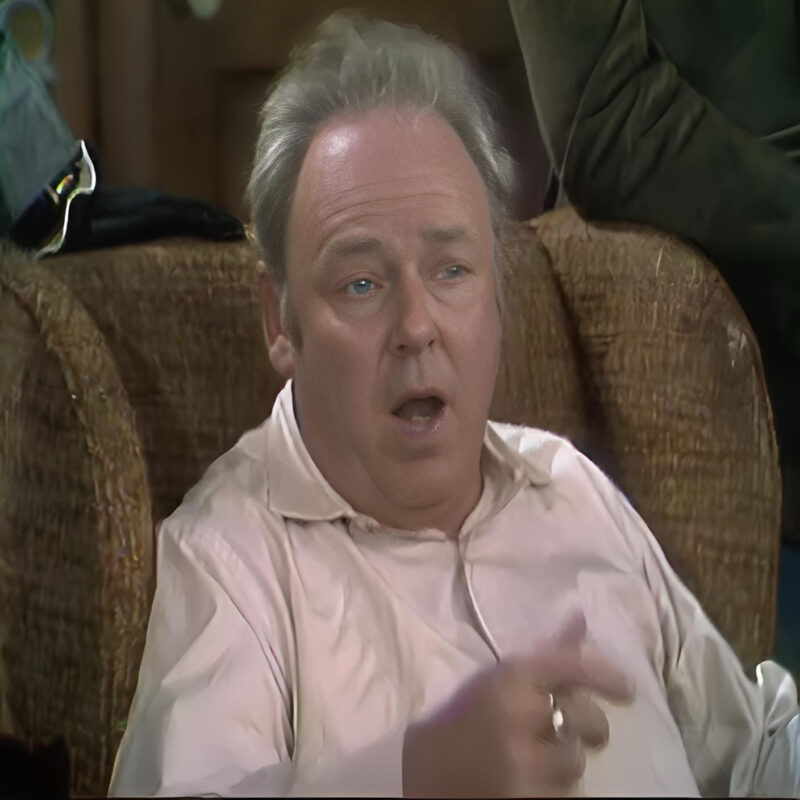
In the world of television, the main character doesn’t always have to be a moral paragon or even likable. This idea of gray morality, where protagonists are not strictly good or bad, has become increasingly popular. This concept can be traced back to one of the landmark sitcoms of the 1970s, “All in the Family.” Rob Reiner, who played Michael Stivic on the show, noted that Archie Bunker was never meant to be a lovable, relatable, or admirable hero.
“All in the Family” walked a precarious line by putting Archie Bunker in the spotlight, portraying him as someone who could be anyone’s neighbor. The producers and cast aimed to present real-life characters and let the audience respond. The reactions they received were unexpected and surprising.
Carroll O’Connor vs. Archie Bunker
Archie Bunker, one of the main characters of “All in the Family,” was infamous for his blunt statements, grating comments, and judgments rooted in outdated thinking. Even the show’s producer, Norman Lear, felt that Archie needed an equal and opposite force to counterbalance him, which led to the creation of Maude, a character designed to “destroy” Archie.
In stark contrast to his character, Carroll O’Connor, who played Archie, would never utter the harsh things Archie said. “On the contrary,” Rob Reiner explained, “everyone associated with the show was liberal-minded. We were simply presenting both sides and letting the audience decide. Unfortunately, a lot of the audience simply fell in love with Archie.”
The Unintended Love for Archie Bunker
Despite their intentions, “All in the Family” saw viewers embracing Archie Bunker in unexpected ways. Fans even wore clothing promoting Archie Bunker for president. This reaction was contrary to the vision of Norman Lear and the show’s team. “Lovable” was never an adjective meant to describe Archie Bunker. Reiner admitted, “I know we were criticized by some for making a bigot lovable, but that was neither our intention nor that of Norman Lear.”
Norman Lear’s vision involved presenting contemporary social topics to the audience. His sitcoms often addressed relevant issues of the times, and “All in the Family” was no different, despite the unexpected audience reactions. The script became especially personalized during the show’s fourth season when the entire cast was recruited to work on the scripts. This highlighted the dichotomy between intention and realization in creative work.
A Lasting Legacy
“All in the Family” ultimately provided a practical example of how creators’ intentions can diverge from audience perceptions. The show’s bold approach to social issues and character portrayal left a lasting impact on television. While Archie Bunker was not intended to be lovable, the character’s complexity and the show’s willingness to tackle difficult subjects made it a groundbreaking series.
What did you think of Archie Bunker’s character? Did you see him as a lovable bigot or a reflection of society’s flaws? Regardless, “All in the Family” remains a significant part of television history, continuing to spark conversations about morality and character complexity.
